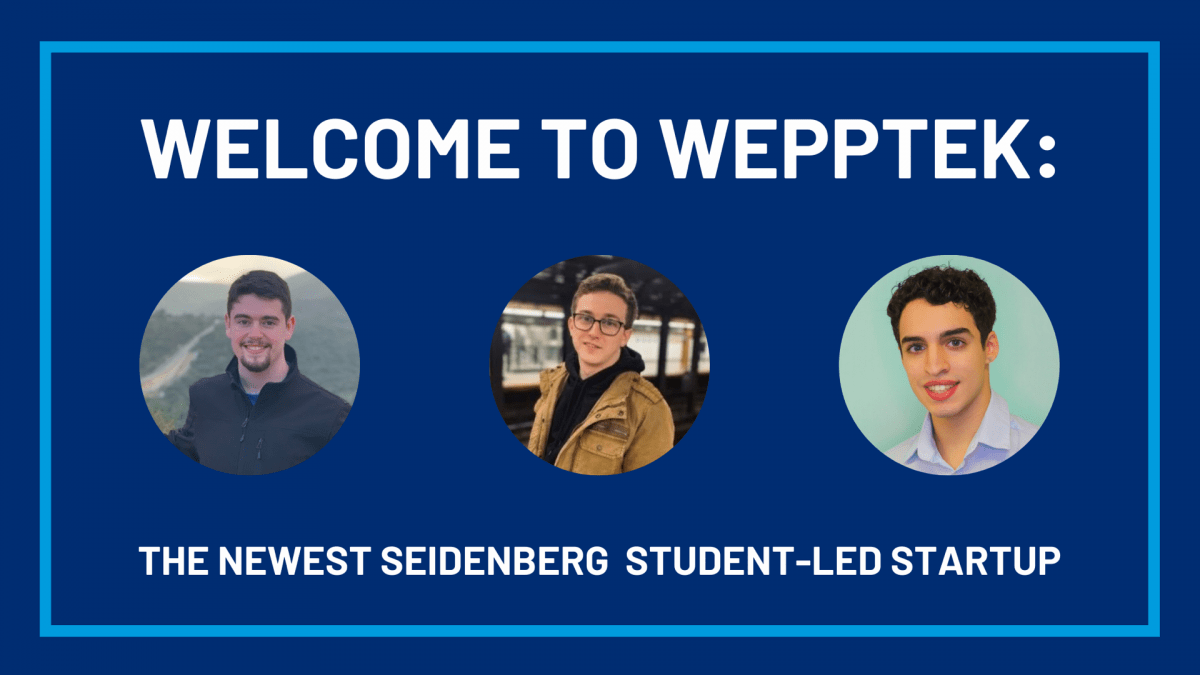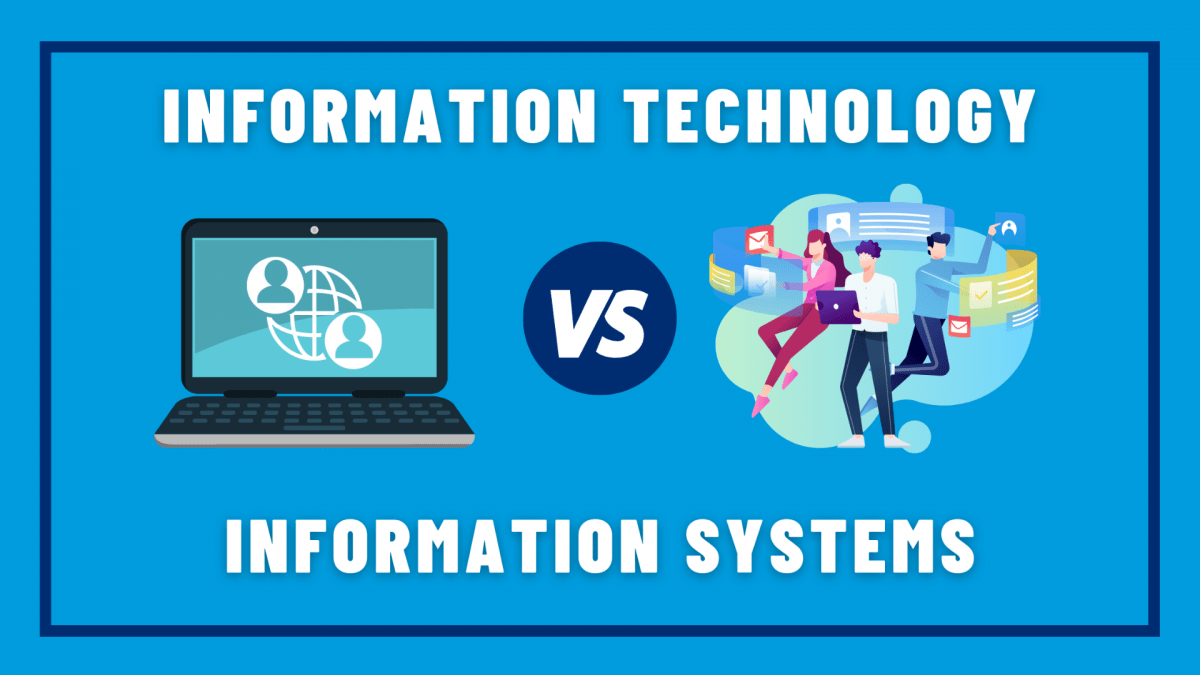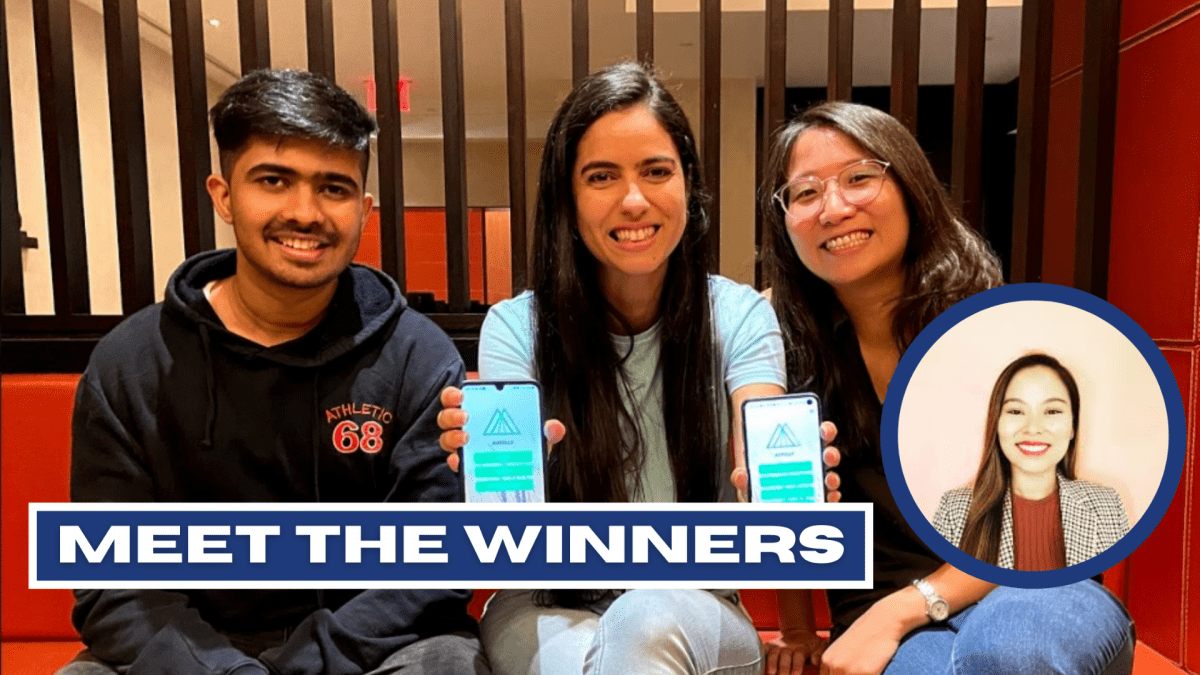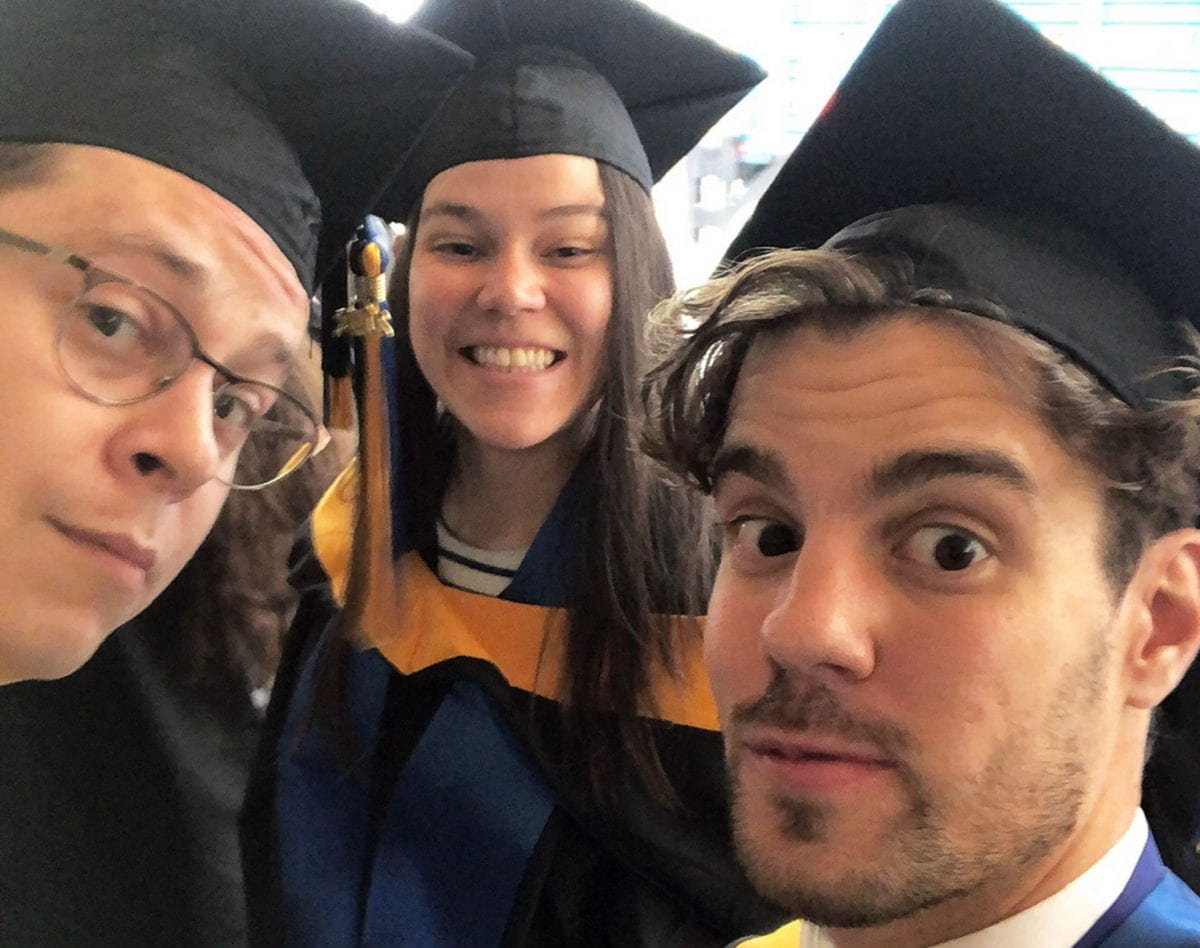The Seidenberg School of CSIS is ecstatic to announce the emergence of a new student-led startup in our community. Wepptek—started by Seidenberg students Allan Krasner, Manuel Garza, and Isaiah Jimenez—is the up-and-coming business for all of your professional website and app needs.
Allan, Manuel, and Isaiah came up with the idea of Wepptek after acknowledging their collective potential while working together at Seidenberg Creative Labs (SCL) and the Entrepreneurship Lab (eLab). With their mix of managerial, technical, and business skills, they knew they had everything they needed to get everything going.
“The three of us met together for the first time in the eLab without realizing that we would be working much closer together in the near future,” said Allan. “Seidenberg Creative Labs helped the three of us understand how the flow of projects is supposed to work and helped us understand any potential problems that we might run into in the development process.”
While their varied mix of experiences helped this group feel confident to build Wepptek, Allan said that the inspiration for the startup was a long time coming. When Allan took on a Project Management role at SCL at the end of his freshman year, it opened his eyes up to the kind of career he wanted he wanted to build for himself.
“This experience made me realize that I love talking to people, and I’m great at breaking down complicated tasks into small pieces,” said Allan. This being combined with my drive for creating my own company set the gears in motion, but I couldn’t do this on my own.”
Allan said that his co-founders and friends Manuel and Isaiah had the ambition and goals they needed to start their company. Once they got together and realized what they could do, they got off the ground running.
“Our first project was with a charter school consulting firm where they had us create landing pages for them so that they could get their enrollment numbers up, and this happened around the end of January,” Allan said.
Through this process, they came to understand their roles within Wepptek. As CEO, Allan said that he keeps the business running efficiently and smoothly to keep snags out of the process. As CTO, Manuel assists in the direction of the technology used per project. Isaiah works at the COO and has his sights on making sure Wepptek operates properly while also bringing in more clients.
Now they are setting their sights on gathering more projects. The team is currently working on a website for the Union of Adjunct Faculty at Pace (UAFP).
“They currently have a website that got created with WordPress, but it is Wepptek’s job to maintain and add any additional features that get asked of us, such as an internal social media for people that sign up to their website directly,” said Allan.
The group is figuring their communication and workflow as they grow. It has been interesting during the pandemic while they mostly communicate online. However, they succeed in ensuring each project has its full and undivided attention. They hope to expand the business outside of their networks.
“We are constantly thinking about how we can expand and grow our business, and one of the things that we can all agree on is having a huge focus on marketing and promoting ourselves,” Allan said. “So far, most of our clients have been from personal connections that the three of us have established for ourselves, but we also realize that this is only a temporary solution.”
Currently, the team prides itself on having a satisfaction guarantee. Wepptek will work with each of its clients to ensure that each project is clean and professional level.
Are you in need of a professional website or app? Reach out to the team through their website at Wepptek.com
























